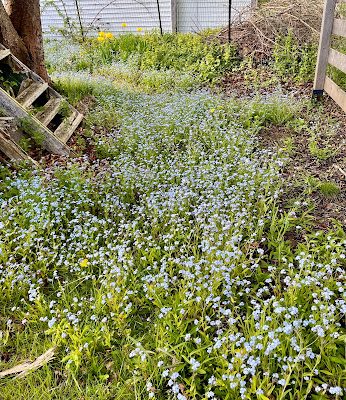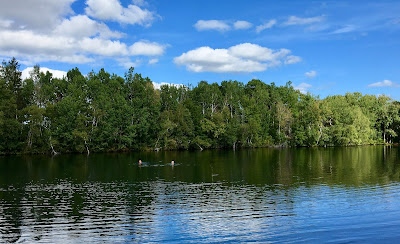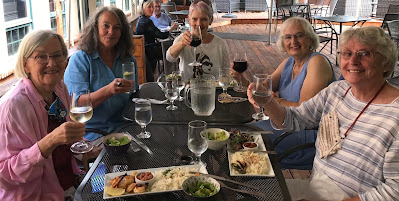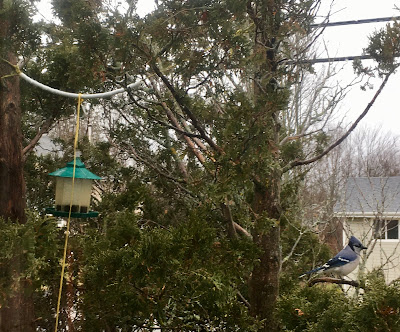I never thought I'd end up with a little yappy dog with entitlement issues, but here we are. She comes from Elderdog (a dog rescue agency that tries to match older owners and dogs), from a rather unpleasant background. A 13 year old Pekinese/Lab Retriever mix with a few minor health issues (for now). Princess is pretty much the antithesis of Hapi.
I always thought that while Hapi made people around her very happy, she wasn't really a happy dog herself. Not unhappy, just more reserved and independent. And Princess confirms that, she is definitely a happy dog despite her background. She makes me laugh, she likes to cuddle, and she sleeps in (on my bed). She will never replace Hapi, but she is the right dog for me now.
With Hapi I could look up Malamute behaviour and she fit it to a T, but Princess being a mix I can't really do that. Sometimes I can say, "oh that's the Pekinese in her" or "that's the Lab in her", but I've only had her now for three weeks so I'm still getting to know her. She has definitely made herself right at home here; she's landed on her feet and she knows it.
Princess is a bit of an energy draw though, she loves going for walks and she can move much faster and further than I can, even with her limp and tiny legs. The limp gives her a kind of rolling gait which is cute. She would dearly like to play with the bigger dogs at the Reservoir, but her tiny legs can't keep up with them.
~ ~ ~ ~ ~ ~
Big snow storm on Friday with about 5 or 6 cm on the ground on Saturday. My guy came to shovel in the afternoon, he was very slow but he got the job done, with some direction from me. Finally I can lay off the snow shovelling!
I had to do a stress test last Monday, I was half hoping that I would get at least one test that showed an abnormality, but this wasn't it. Tiring but not significant. But between hauling a load or two of firewood in and walking the dog every day, I am always fatigued and dizzy and brain fogged. Started LDN for the second time, no side effects this time but no positive effects either. However they say it can take up to a year or more to start seeing benefits, if any. I'm just happy the worst side effects last time—nausea and depression—are not there now.
~ ~ ~ ~ ~ ~
In November?December? I watched a Netflix fantasy series called The Bastard Son and the Devil Himself. I thought it was really good but Netflix decided not to renew it. Then they changed the title, now it's called Half Bad, which is the book series it is based on. The library has the book series so I am reading that.
YA fantasy literature is often not that well written but this one is, the author Sally Greene is older and I guess a better writer than many YA authors. She says she likes the Hemingway style of writing and tries to emulate it. I finished Half Bad and am on to the second book, Half Wild. I can see that while the Netflix series was more or less true to the main characters and the overall plot, it definitely made a lot of changes in timing and specific plotlines, also dropping a few to make it less complicated.
Greene revised her novels based on some of the things she learned from the screen version. Nothing serious, but she saw the racist implications in what she originally wrote that the Netflix version changed to something more neutral, so she did too. I got the first book as an online book with her revisions, but the print versions the library has are older and still contain the problematic language.
It is the rare author who writes a novel that can be directly translated into a screenplay. A novel is a different storytelling medium from theatre or big/small screen video; novels don't always work so well in strict translation, or vice versa. Very much depends on the talent of the writers and directors involved.




























